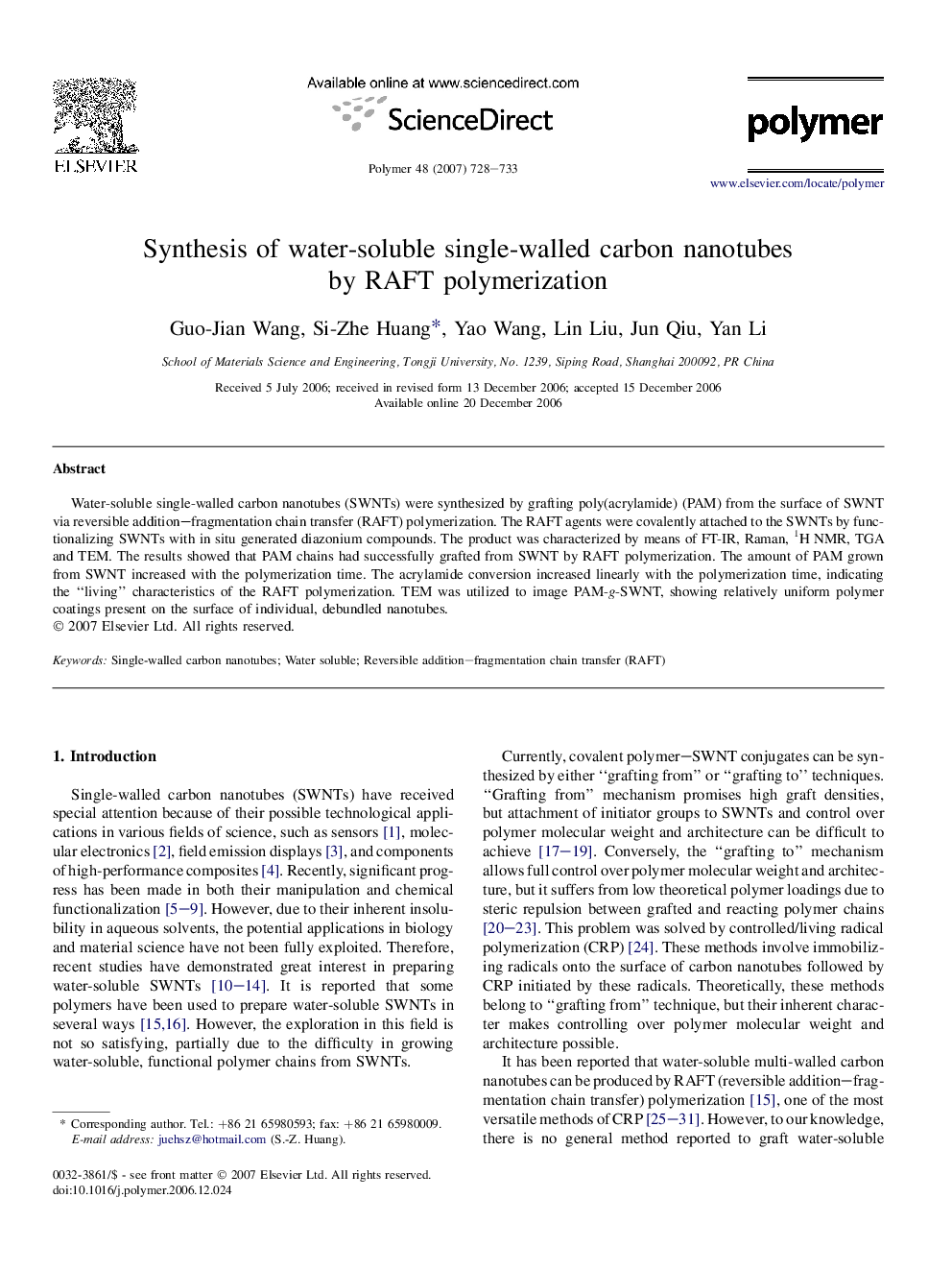| Article ID | Journal | Published Year | Pages | File Type |
|---|---|---|---|---|
| 5186286 | Polymer | 2007 | 6 Pages |
Water-soluble single-walled carbon nanotubes (SWNTs) were synthesized by grafting poly(acrylamide) (PAM) from the surface of SWNT via reversible addition-fragmentation chain transfer (RAFT) polymerization. The RAFT agents were covalently attached to the SWNTs by functionalizing SWNTs with in situ generated diazonium compounds. The product was characterized by means of FT-IR, Raman, 1H NMR, TGA and TEM. The results showed that PAM chains had successfully grafted from SWNT by RAFT polymerization. The amount of PAM grown from SWNT increased with the polymerization time. The acrylamide conversion increased linearly with the polymerization time, indicating the “living” characteristics of the RAFT polymerization. TEM was utilized to image PAM-g-SWNT, showing relatively uniform polymer coatings present on the surface of individual, debundled nanotubes.
